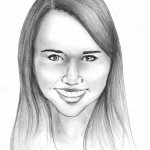Last Wednesday, I attended the first meeting of the Dean Search Task Force. The group is composed of five students working to compile the results of the Yale College Council survey on the search for the next dean of Yale College. The survey asks about qualities desired in the next dean and issues he or she should focus on. It also solicits names of particular individuals who should or should not be considered for the position.
 The responses received by the YCC so far are thorough and touch on a wide range of student issues, but there’s a problem — only 16 responses were submitted as of last week. In order to present a fuller, more representative view of what the student body wants in the next dean, more students need to respond to this survey.
The responses received by the YCC so far are thorough and touch on a wide range of student issues, but there’s a problem — only 16 responses were submitted as of last week. In order to present a fuller, more representative view of what the student body wants in the next dean, more students need to respond to this survey.
YCC emails us surveys now and then, and it is not always entirely clear how representatives plan to use the results. This case, however, is different. The results of the survey, along with a summary written by the task force, will be passed on directly to the Deans Search Advisory Committee and President Peter Salovey. The committee will compile a list of potential candidates and Salovey will ultimately choose the new dean, along with the deans of the Graduate School and the Faculty of Arts and Sciences.
This search is very different from the opaque presidential search in 2012. The Presidential Search Committee solicited student input via surveys, town hall meetings and a student liaison. However, the student liaison was not permitted to attend committee meetings; he was granted access to only one member of the committee, a professor from the California Institute of Technology.
It is very well possible that in 2012 all student input was successfully communicated to the committee and that members of the committee took it upon themselves to advocate for students during the presidential search. Yet without a student present at the meetings, there was no way to know if the committee was taking student opinion seriously. This time around, YCC President Danny Avraham ’15 will be sitting at the table, and he will have the power to hold the committee accountable to student demands. But in order for him to represent our opinions, the student body has to communicate with Avraham.
The results of the YCC survey will be published, meaning that the public will have access to the list of student expectations for their next dean. If, for example, the survey results indicate that students overwhelmingly want a dean who will push to expand gender-neutral housing and the next dean does not follow through, it will be immediately obvious that he or she is not meeting student needs.
The survey responses thus far have touched on a number of topics that affect students on a day-to-day basis, including alcohol policies, grading, mental health reform, open data policy, wheelchair accessibility, STEM expansion, the new residential colleges and student contribution for financial aid. I am sure that there are plenty of crucial issues that have yet to be mentioned by survey respondents.
The survey results also indicate student opinion on qualities desired in the next dean. Should the next dean be a graduate of Yale College? Is it important that the dean be a minority? A woman? What kind of experience with undergraduate life should the dean have? Would a STEM background enhance the dean’s ability to expand resources for those students? There are probably many more questions that need to be raised in this regard as well.
I would hate for the summary of the survey results to misrepresent or underrepresent student opinion. With only 16 responses, that is a very real possibility. So take a couple of minutes to fill out the survey. You can find it in your email, or under the “Projects” tab on the YCC website.
It’s easy to feel that student voice isn’t taken seriously at a place where a disconnected corporation appears to unilaterally make decisions without considering student (or faculty and staff) views. But we finally have a chance to voice our concerns about the next dean, an administrator who directly affects every single one of us. With a student sitting on the committee, we can finally ensure that our concerns will be heard.
Diana Rosen is a sophomore in Pierson College. Her columns run on Mondays. Contact her at diana.rosen@yale.edu .







